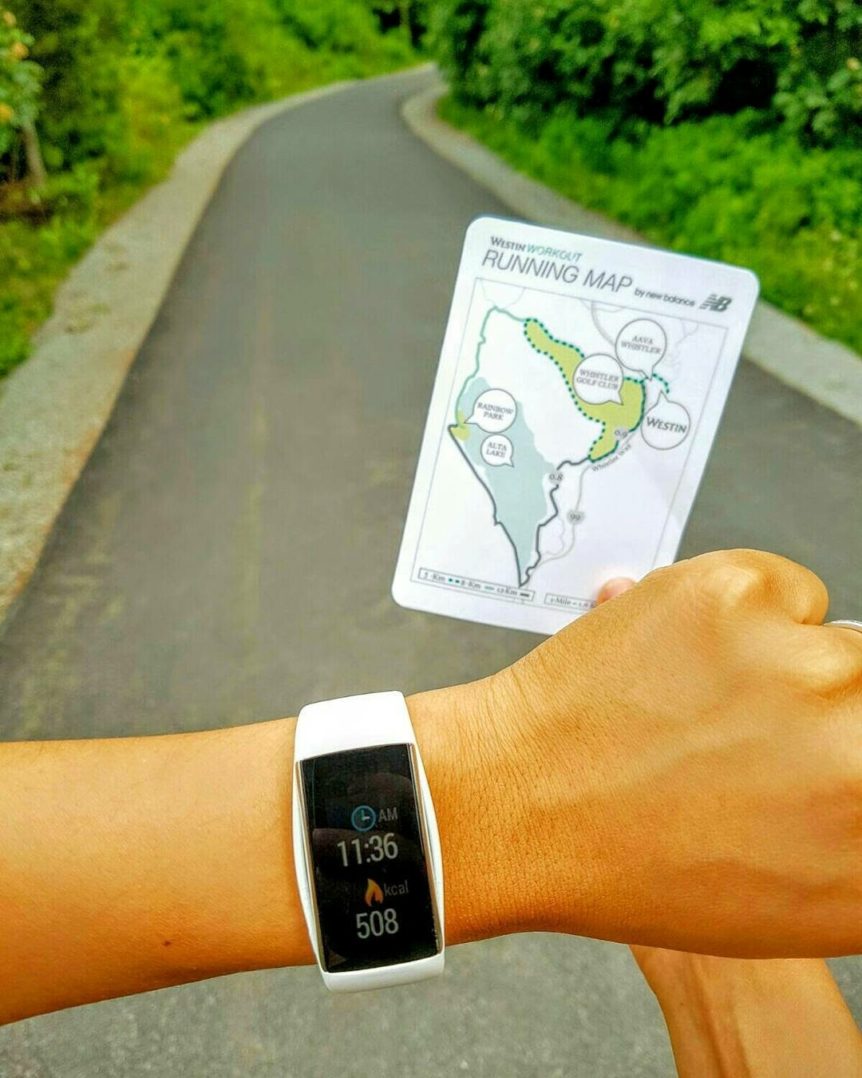One of the most common questions I get is about my fitness tracker. Do I like it? Does it work? Do I eat back the calories I burn? What one do I have?
I LOVE my fitness tracker/watch. I’ve had a couple different ones over the past couple of years. I find it highly motivating to see how much I’ve walked and get reminders about when I’m not moving enough. When switching over from a Samsung one I had a found a HUGE difference in the pedometer. On my old one, 10,000 steps would translate to ~10 km. On my current one I walked 20,115 steps equaled 13.2 km. That’s a HUGE difference. With all fitness trackers there are going to be differences. If you switch trackers I’m sure you’ll notice differences in calories, burned, steps, etc.
My point? Fitness trackers CAN be a fantastic way to get motivated, get reminders to move and collect statistics. BUT none of them is 100% accurate. A 2017 Stanford study found, “Even the most accurate device was off by an average of 27 percent. And the least accurate was off by 93 percent.”
So, what’s the point?
- Most trackers are able to measure heart rate with an error rate of less than 5 percent which can be very helpful during exercise.
- Even if the pedometer and calorie burn aren’t 100% accurate. To track progress I recommend comparing your stats from one week to the next to get an idea if you’re walking/being active more or less than the previous week as opposed to my old watch said X and my new one says Y.
- Extrinsic motivation – you can compete with yourself or your friends to be more active which is super motivating for a lot of people.
What about the calorie burn?
- I personally don’t rely on it. Sometimes I find that it can be accurate, and other times I’m 1000% sure it’s over estimating my calorie burn.
- I DO NOT use the calories burned to help me figure out how much to eat
- I DO NOT intentionally eat back calories burned
- I DO believe that using only these stats to calculate how much you can eat has the potential to hinder your progress as they don’t take into consideration your metabolism, body composition or a lot of other personal factors that dictate calorie burn. Most trackers ask you to enter your age, weight, gender, height and maybe a couple other factors. However, it doesn’t take into consideration my body fat/muscle percent. Since starting my fitness journey, I’ve been 150 pounds twice in my life. I am currently 150 pounds and weight train 5-6x a week, eat well and walk a lot. In the past, I was 150 pounds but I was quite sedentary, was eating really poorly and had little energy and minimal muscle. The difference in my metabolism then and now is HUGE. However, it isn’t something my fitness tracker takes into consideration. So, if you decide to use one or buy one, make sure you’re doing so in a realistic way that supports and encourages an active lifestyle. But don’t rely on it to make progress and eat a certain way.
I’ve used the Polar A360. Then The Polar A370. Now I have a Samsung one (not sure which one, it was a gift). I focus on using them only for motivation and comparing my results and calorie burn to other days.
Ex. doing the same workout and comparing my heart rate or overall calorie burn…once again, not because calories are accurate but to get a feel for intensity, duration, if I did cardio accelerations in between, took shorter rest breaks, worked harder…

